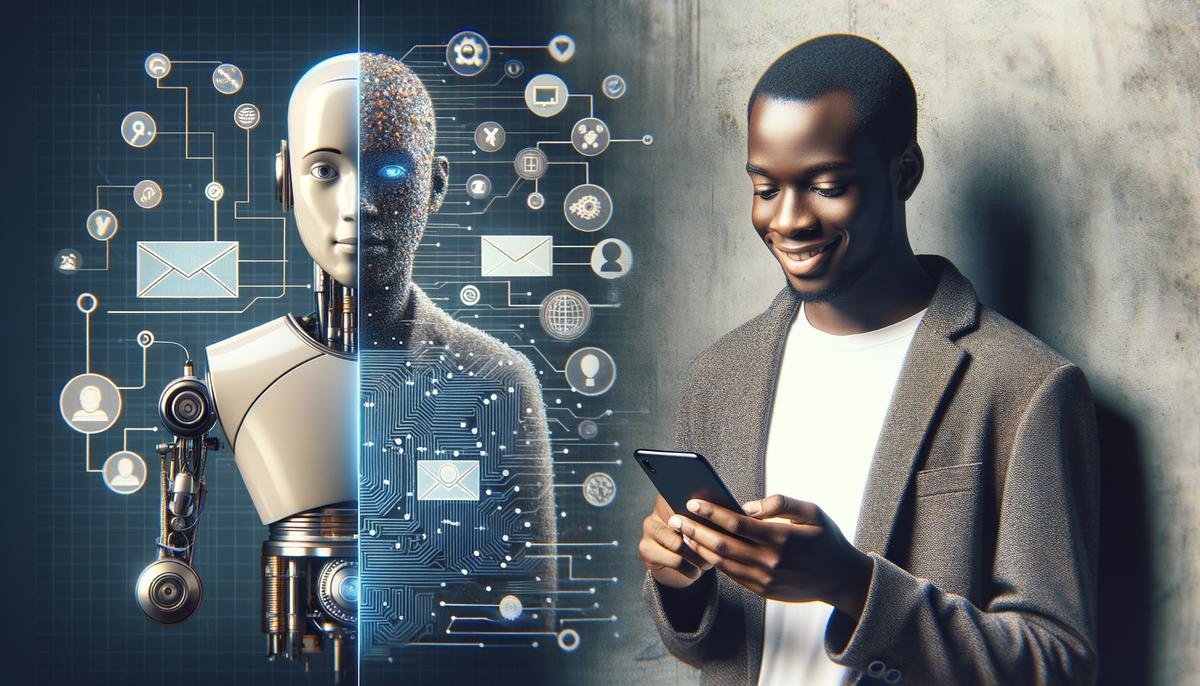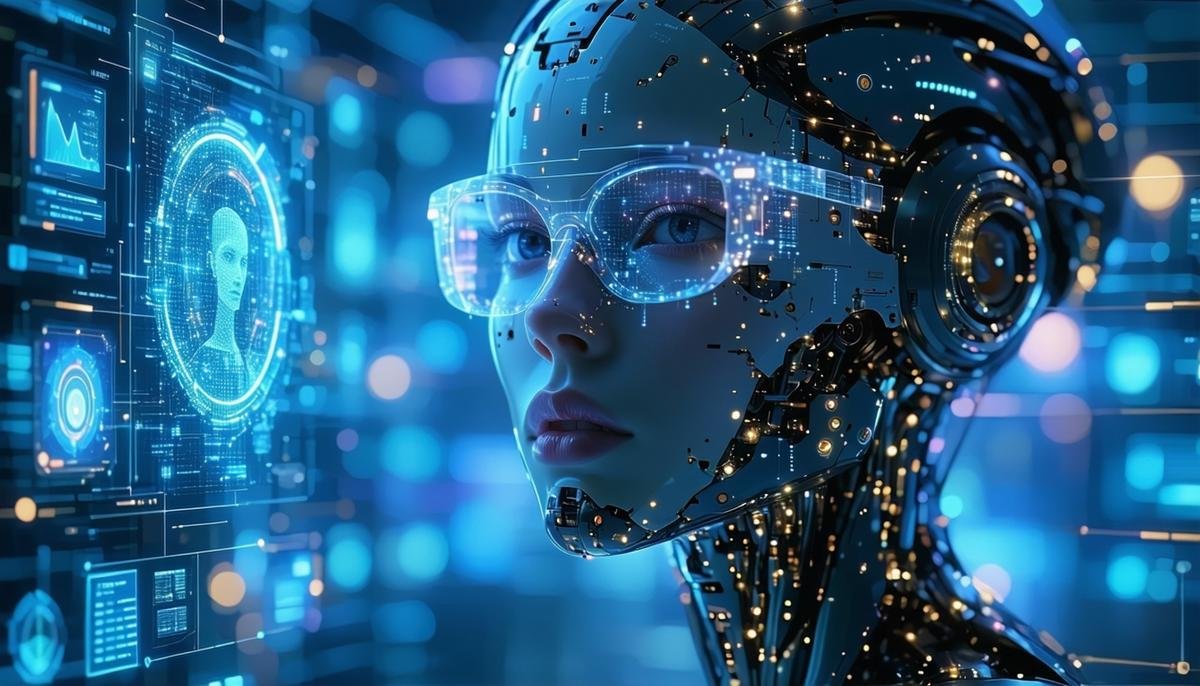AI Integration in HR Processes
HireVue's AI interview analytics enhances HR departments' capabilities by streamlining candidate screening, interview scheduling, and data analysis. The AI pre-screens candidates accurately, allowing HR professionals to focus on personal aspects of hiring. It also improves interview scheduling by automatically managing calendars and sending reminders.
Data analysis is another area where AI excels, interpreting numbers and providing insights that humans might overlook. This equips HR teams with data-driven assertions for decision-making.
Generative AI enhances candidate engagement through tools like chat-based job matching, creating a more interactive and personalized experience. AI also identifies skill gaps, suggests training, and supports career development within organizations.
While concerns about AI biases persist, HireVue addresses this in their Explainability Statement. Other AI-supported products like Arya by Leoforce and ICIMS Talent Cloud follow similar trends, optimizing processes through intuitive dashboards or integrated communication platforms.
The trend is moving towards universal integration with existing applicant tracking systems, improving interoperability for HR departments.
Benefits of AI Interview Analytics
AI interview analytics offer HR departments significant advantages, making the hiring process more inclusive and efficient. Key improvements include:
- Bias reduction: Algorithms focus on objective criteria, minimizing unconscious human prejudices.
- Enhanced candidate experience: Technology-driven interactions adapt to responses, ensuring evaluation based on merit.
- Improved decision-making: Quick aggregation and analysis of comprehensive data sets allow for informed, strategic hiring choices.
- Ongoing career development: AI identifies skill gaps and suggests personalized development paths, empowering employees to upskill in relevant areas.
These benefits position companies leveraging AI in their HR processes as leaders, ready to address future challenges with a skilled and motivated team.

Generative AI in Candidate Engagement
Generative AI transforms candidate engagement by creating personalized communications that make candidates feel valued. It customizes job descriptions and correspondence, turning formulaic interactions into meaningful dialogues.
For recruiters, generative AI serves as a reliable assistant, speeding up the process of drafting and personalizing candidate communications. This allows recruiters to focus on strategic hiring aspects without compromising interaction quality.
The effect on candidate experience is significant, helping candidates understand how they fit into a potential role. This approach reflects positively on the organization, portraying it as forward-thinking and candidate-focused.
Generative AI also proves invaluable in quickly resolving candidate queries and disseminating information, reducing waiting periods and improving responsiveness.

Challenges and Considerations
Integrating AI into HR processes presents challenges that require careful consideration:
- Data privacy: Protecting sensitive candidate and employee information is crucial.
- Algorithm maintenance: Regular assessments ensure AI outputs remain relevant, accurate, and unbiased.
- Human oversight: Balancing AI-driven tasks with human judgment is essential for crucial decision-making processes.
- Vendor selection: Organizations must consider factors such as track record, algorithm transparency, and commitment to ethical practices.
- Ethical AI use: Clear guidelines for AI system use and decision-making processes are necessary to build trust and improve recruitment processes.
Addressing these challenges ensures that AI deployment in HR is both beneficial and sustainable.

Future of AI in Talent Acquisition
As AI becomes increasingly integrated into talent acquisition, its influence will reshape recruitment and talent management. Future trends include:
- Internal mobility and succession planning: AI will identify employees with growth potential, transforming succession planning into a dynamic process.
- Personalized career development: AI-driven insights will align individual growth with organizational goals, strengthening employee engagement.
- Automated recruitment processes: AI solutions will handle more comprehensive responsibilities, from initial outreach to onboarding.
- Enhanced candidate interactions: Advanced AI models will offer more personalized and relevant experiences throughout the recruitment journey.
- Ethical considerations: Ensuring fairness, transparency, and accountability in AI deployments will remain central to future talent acquisition strategies.
As technology evolves, AI will continue to be a catalyst for innovation and efficiency in HR processes.

AI's role in talent acquisition is reshaping how organizations approach recruitment, combining efficiency with a human touch. As technology advances, it becomes an essential ally in addressing hiring challenges, ensuring that HR processes are streamlined, insightful, and engaging.
- Engagedly. AI in HR Management Survey. 2023.
- IDC. AIPath Survey. November 2022.
- Apps Run the World. ATS Market Share Research. 2022.



